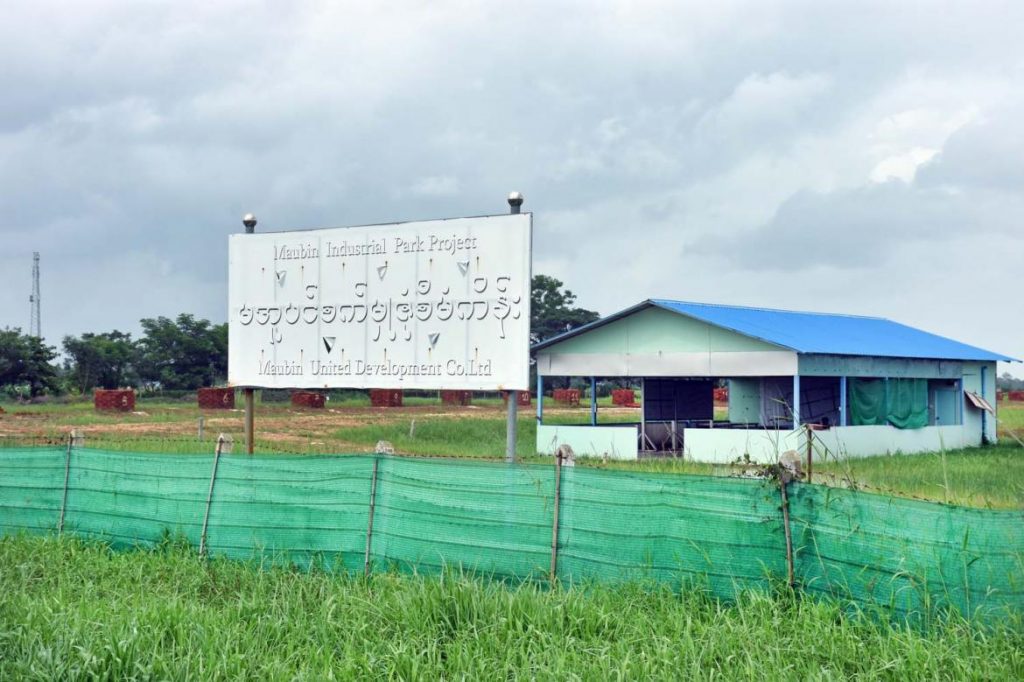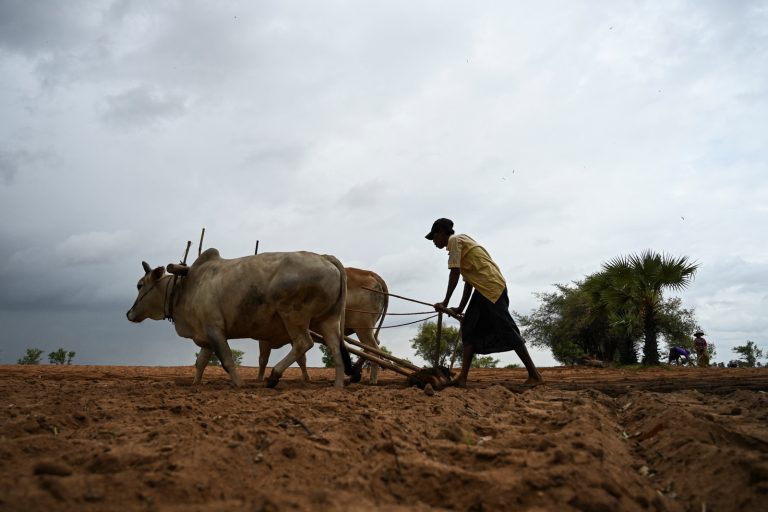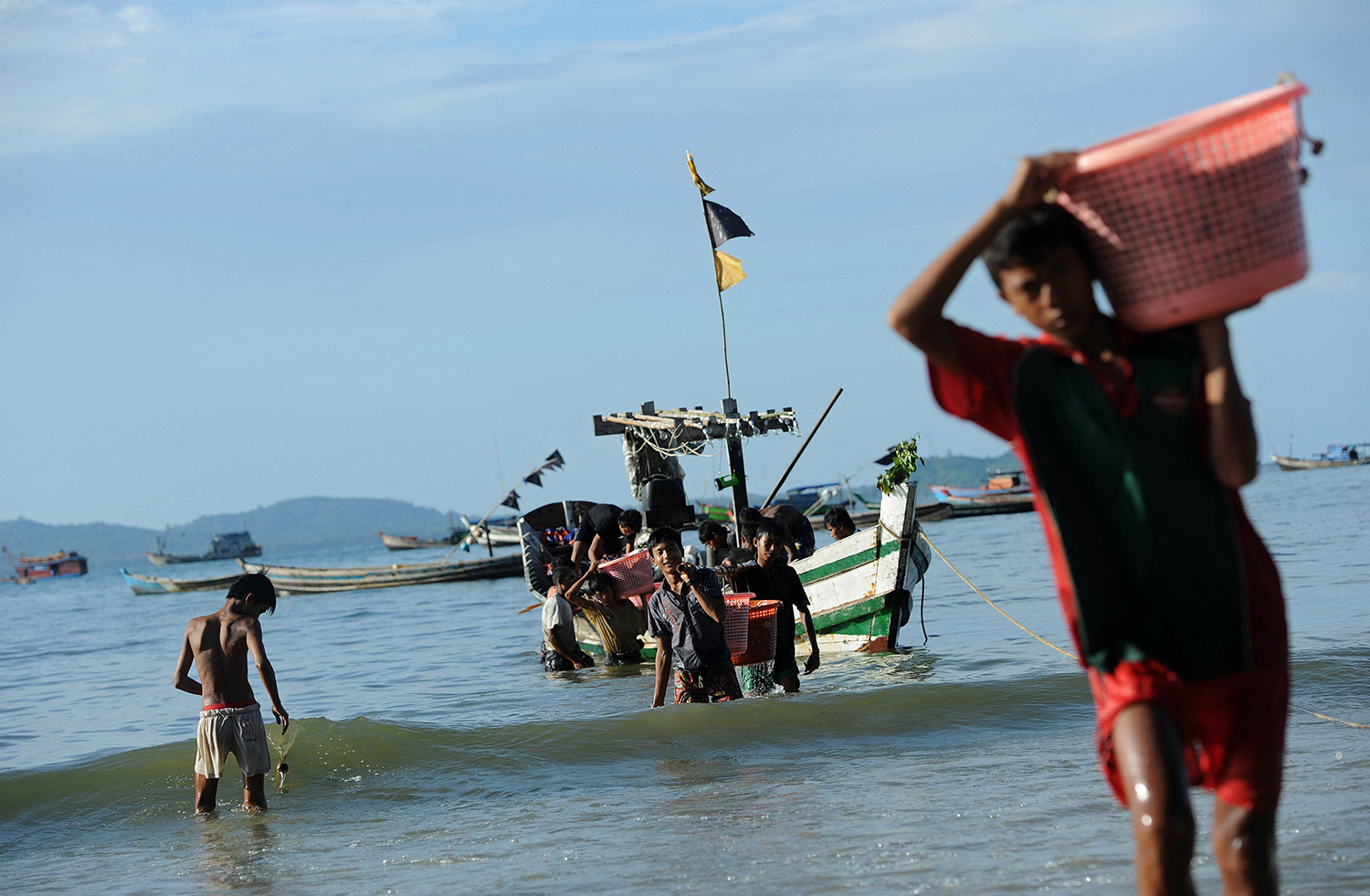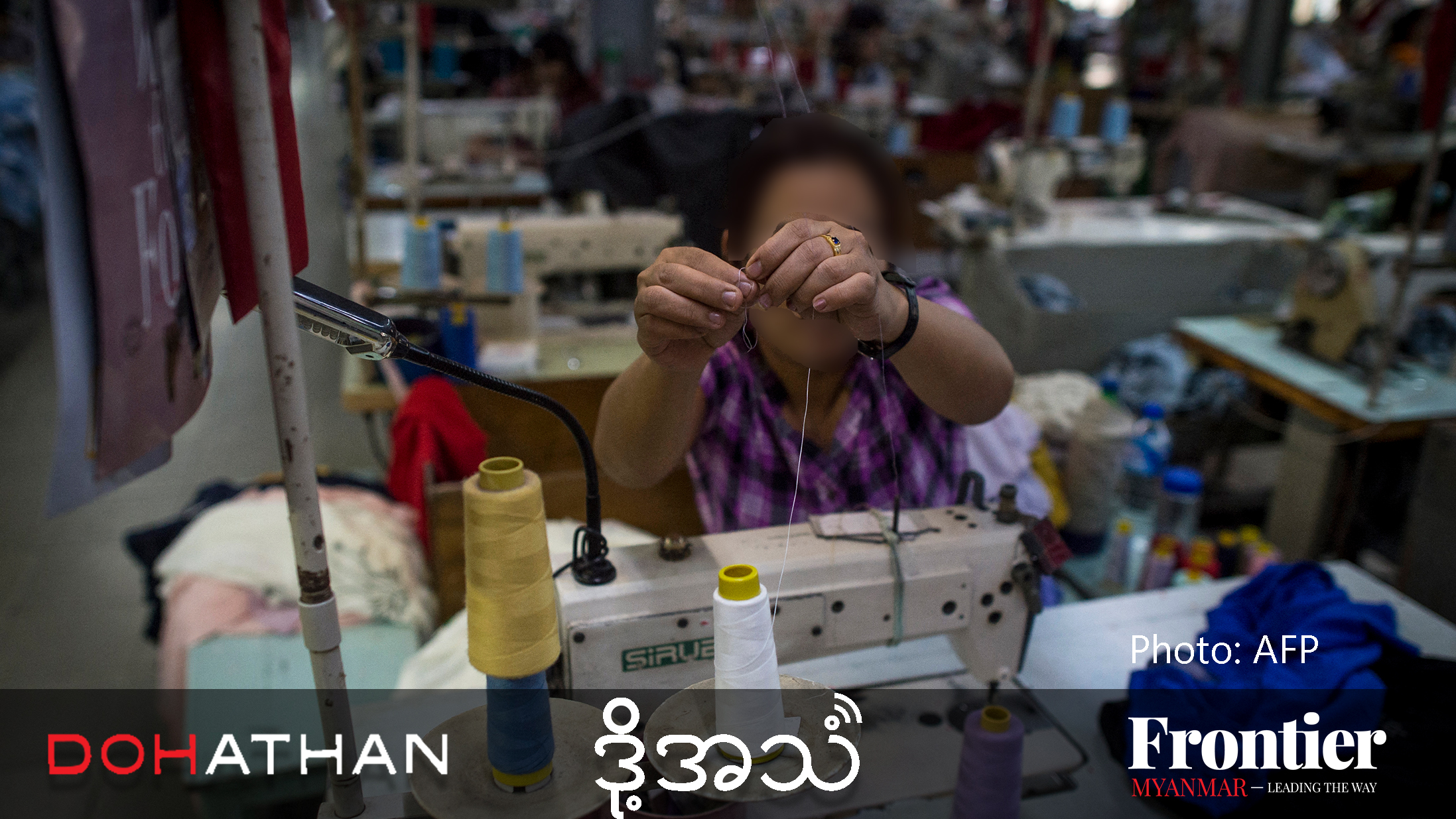A Union committee’s decision removes a key obstacle to plans for a privately owned and managed industrial park on farmland in Ayeyarwady Region that has seen strong interest from Chinese investors.
By HEIN KO SOE | FRONTIER
THE DEVELOPMENT of an industrial park in Ayeyarwady Region has taken a major step forward following a decision to designate hundreds of acres of farmland as suitable for industrial use.
The decision in July by the National Land Resources Management Central Committee came with work expected to begin early next year.
Maubin Development Public Co Ltd received approval from Myanmar Investment Commission last November to develop the park on 250 acres (101 hectares) of farmland in the rural township, on the vast Ayeyarwady Delta plain about 90 kilometres west of Yangon.
MDPC has formed a joint venture with Shanghai Yangon Investment Co Ltd, which has a 55 percent share in the project, the Ministry of Information said in a May 2017 news release which noted that some of the 136 shareholders are farmers.
Support more independent journalism like this. Sign up to be a Frontier member.
The release said 50 factories would be built at the park, of which 42 would be for garment manufacturing.
The park, on the Maubin-Kyaiklat main road, is being developed at an initial cost of US$28 million, the Myanmar Times reported last November.
The park was first proposed in 2014 but was shelved because the land was designated as farmland and could not be used for industry purposes.
An application from MDPC to change the designation of the project area to industrial land was approved on July 18 by the National Land Resources Management Central Committee, chaired by Vice President U Henry Van Thio.
MDPC director U Myint Oo said the next step for the company was to receive approval for the industrial zone from the cabinet in Nay Pyi Taw.
The first phase is expected to get underway in March 2019, with six to 10 garment factories to be developed. The second and third phases will be completed in March 2020, Myint Oo added.
The industrial park is expected to eventually create 70,000 jobs. Chinese language lessons were planned for factory workers so they can communicate with foreign investors, MDPC chairman U Yan Win was quoted as saying in the Information Ministry’s May 2017 news release.
MDPC has a board of 11 directors, including Myint Oo, two farmers who sold land to the company, and several Maubin business people, including one of the most prominent, U Yan Win, who is also chairman of the Myanmar Hotelier Association.
“The industrial zone will create jobs for our Maubin natives; it is coming in a very short time,” said Yan Win, who represented Maubin-2 constituency in the regional assembly for the Union Solidarity and Development Party until his defeat by a candidate from the National League for Democracy in the 2015 election.
Myint Oo said the project’s goal was for the industrial park to expand in stages and eventually cover 3,500 acres (1,416ha).
Myint Oo said MDPC would lease plots for US$100,000 an acre for 50 years. When the land was initially acquired for the park in 2014, farmers were paid K6.5 million an acre, he said.
“We have already leased land for factories that will cover 60 percent of the project area of 283 acres,” said Myint Oo, adding that most companies that have signed leases are Chinese.
“We are a pioneer because Maubin will be the first private industrial zone,” he said. “And it won’t just be a zone where land is sold to developers and nothing happens – you’ll see factories operating here.”
Frontier could not confirm that Maubin was the first private industrial zone, but a member of the Shwe Lin Ban Industrial Zone management committee said he believed it was correct. In the past, all industrial zones had been established by the government, he added.
“Every investor had to apply for land within the zone from the government,” he said. “That’s how it worked in every state and region.”
He said transportation and electricity would likely prove challenging for MDPC. “There’s no port at Maubin so investors will have to re-transport from Yangon and that will increase the cost,” he said.
The regional government had approved the project in 2016, partly because it would contribute to the local economy by creating jobs, said U Win Htay, Ayeyarwady Region Minister for Electricity, Energy, Industry and Transportation.
Most residents of Maubin and the surrounding area had to go to Yangon to find work, he said.
Win Htay said the regional government had closely examined the project proposal to ensure it was genuine and not a scheme to sell land to foreigners. He said the developer would be responsible for providing all the necessary infrastructure to factories in the zone, and the regional government would act as a regulator. “If the industrial zone doesn’t materialise, the regional government will take action.”
The electricity supply to Maubin has improved significantly since July, when the Ministry of Electricity and Energy completed a new 230kV transmission line between Hlaing Tharyar and Kyaiklat Township, south of Maubin. Prior to the completion of the line, residents complained that the electricity supply was often of a very low voltage.
Residents said they were concerned that the additional demand for power from the industrial zone may overload existing infrastructure, causing difficulties for residents.
“We used to get very low voltage electricity and are worried the situation will go back to how it was in the past,” said Maubin resident Ko Soe Htike.
There were also concerns that the Chinese companies leasing land would fail to build factories, or that the zone would have a negative environmental impact.
He said it might be difficult for factories at the industrial zone to recruit workers from the surrounding areas, because most people already work as farmers on their own land.
U Kyaw Thura, a resident of downtown Maubin, said he doubted that the zone would actually be implemented. “I think the project is just about finding a way to sell land to the Chinese,” he said.
If it does materialise, he said he was concerned about wastewater management, particularly the prospect of polluted water being discharged into rivers and drainage channels.
Ayeyarwady Hluttaw MP U Zaw Moe (Maubin-1, NLD) said he shared residents concerns, but added that “if factories are really built and jobs are created, we should welcome the industrial zone”.







